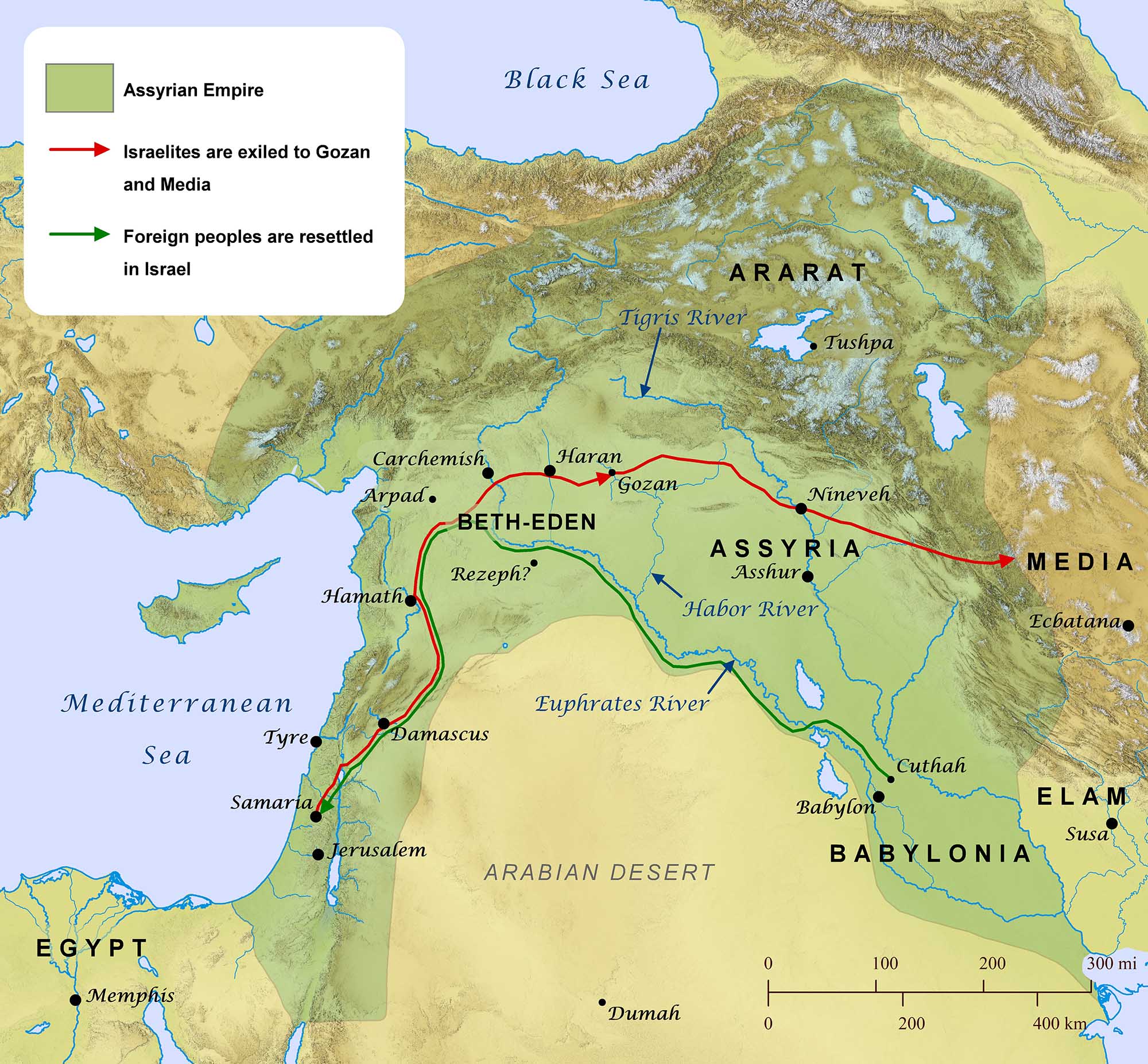Hosea receives the word of the LORD during the days of Uzziah, Jotham, Ahaz and Hezekiah, kings of Judah, and during the days of Jeroboam the son of Joash, king of Israel.
The prophecy of Hosea begins with a title verse that provides the reader with some background information. The verse states that the word of the LORD came to Hosea, thus affirming the credibility of the prophet as well as the source of his message. Hosea was a true prophet because the word of the LORD or God’s revelation came to him.
Hosea was the son of Beeri. Besides this simple statement, virtually nothing else is known of Hosea’s ancestors. His hometown is not mentioned either, but the references to the northern kingdom of Israel made throughout the book likely suggest that he was from the northern kingdom. What is known to us, however, is the time in which the prophet ministered. The Hebrew name Hosea means “salvation” and is a variant of the Hebrew name Joshua. The name Jesus in Hebrew is Yeshua and also comes from this same Hebrew root meaning salvation.
According to the title verse, Hosea’s ministry spanned much of the eighth century BC because he prophesied during the days of Uzziah, Jotham, Ahaz and Hezekiah, kings of Judah. According to 2 Chronicles, King Uzziah of Judah “reigned fifty-two years in Jerusalem” (2 Chronicles 26:3); that may be placed from 792 to 740 BC.
Uzziah was a good king in Judah, the southern kingdom. And because he did what was right, the LORD helped him and gave him victory over many nations (2 Chronicles 26:6-15). However, when he became famous, “his heart was so proud that he acted corruptly by entering the temple of the Lord to burn incense on the altar of incense,” thus stepping into the priestly role, which was not his proper calling (2 Chronicles 26:16). As a result of Uzziah’s abuse of authority, the LORD struck Uzziah with leprosy, and his son Jotham ruled as co-regent with him from 750 until his death in 740 BC.
Uzziah’s son Jotham ruled the southern kingdom of Judah on his own until 732 BC. Following his death, his son Ahaz ruled in his place from 732 to 715 BC (2 Kings 16:1-20). After the death of Ahaz, “his son Hezekiah reigned in his place” (2 Kings 16:20).
In addition to placing the ministry of Hosea during the reigns of the Judean kings, the title verse also places it during the days of Jeroboam the son of Joash, king of Israel. Israel was the northern kingdom. Jeroboam II ruled over the northern kingdom of Israel at a time that may be placed from 793 BC to 753 BC. Since Israel was stable politically and economically during the reign of Jeroboam II and since Hosea prophesied during a time of turmoil, it may be assumed that he began his ministry in the latter years of King Jeroboam II of Israel, perhaps around 760 BC. Therefore, Hosea’s ministry may be dated from around 760 BC to shortly after 715 BC, the first year of the reign of Hezekiah of Judah.
Biblical Text
1The word of the Lord which came to Hosea the son of Beeri, during the days of Uzziah, Jotham, Ahaz and Hezekiah, kings of Judah, and during the days of Jeroboam the son of Joash, king of Israel.
Check out our other commentaries:
-
2 Corinthians 2:5-9 meaning
Paul addresses how to treat a specific person who has caused problems in the Corinthian church. This troublemaker has been sufficiently punished, and ought to...... -
What is Eternal Life? How to Gain the Gift of Eternal Life meaning
When God created men and women in His image, He created them to live in partnership forever with Him as they ruled over the earth....... -
Deuteronomy 24:1-4 meaning
Moses discusses the issue of marriage, divorce, and remarriage in ancient Israel. The first three verses present the problem and the last verse provides the...... -
Exodus 19:10-15 meaning
The LORD tells Moses to consecrate the people in order to prepare them for the making of the covenant. God will come down to Mt....... -
Deuteronomy 16:18-20 meaning
Here, the Israelites are commanded to appoint judges and officers for themselves in all their towns. These judges and officers are to administer justice with......



